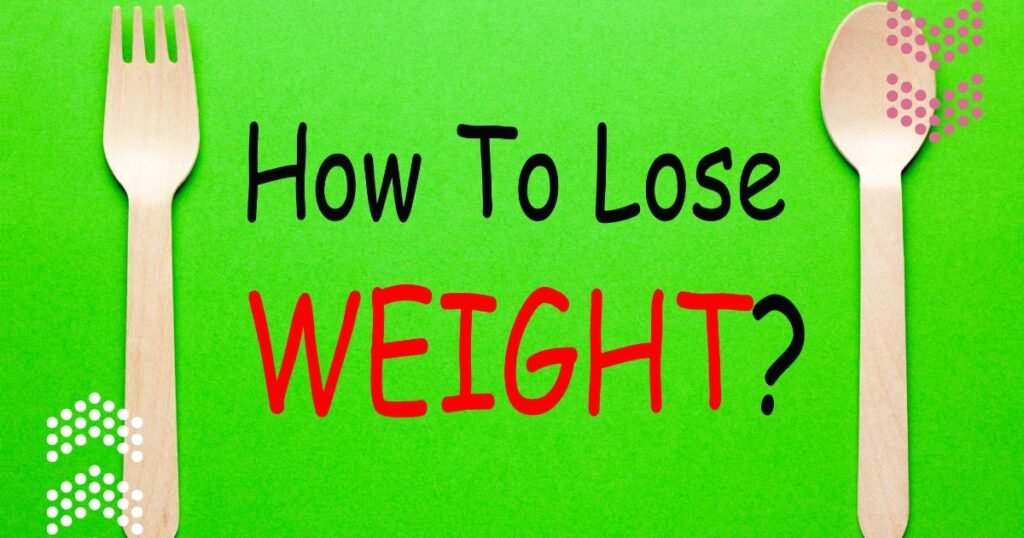The Role of Hormonal Fluctuations After Childbirth in Weight Retention for Women
Postpartum weight retention is a common and often frustrating issue for many new mothers. During pregnancy, a woman’s body undergoes significant changes to support the growing fetus, including hormonal fluctuations that can impact metabolism, fat storage, and overall body composition. After childbirth, many women struggle to lose the weight gained during pregnancy, often due to these hormonal shifts.
Understanding the role of hormonal fluctuations in postpartum weight retention is critical to developing effective strategies for weight loss. This article will explore the key hormones that affect weight retention, explain how they fluctuate after childbirth, and offer actionable tips to help manage hormonal imbalances to aid in weight loss.
Understanding Postpartum Hormonal Fluctuations
Overview of Hormones Involved
Several hormones influence weight retention after childbirth. These include estrogen, progesterone, prolactin, cortisol, insulin, and thyroid hormones. Each of these plays a crucial role in how the body stores and burns fat, regulates metabolism, and maintains overall energy levels.
After pregnancy, these hormones go through significant changes. For instance, the body’s need for estrogen and progesterone declines, while prolactin, which stimulates milk production, increases. Cortisol, the stress hormone, also tends to rise due to the demands of caring for a newborn. These shifts in hormones directly affect a woman’s ability to lose weight after pregnancy.
Postpartum Hormonal Shifts
The hormonal changes that occur postpartum are part of the body’s natural process of adjusting after childbirth. These shifts are intended to support recovery, breastfeeding, and the emotional and physical challenges of caring for a baby. However, they can also lead to weight retention, particularly if the body’s hormonal balance is not restored effectively.
In many cases, the impact of these hormonal changes can last for several months, making it harder to lose the weight gained during pregnancy. Understanding these shifts and how they affect the body can empower women to take the right steps toward weight loss and better health.
Impact of Estrogen and Progesterone on Weight Retention
Estrogen’s Role in Fat Storage
Estrogen is a key hormone in fat storage, particularly around the hips and thighs. During pregnancy, estrogen levels increase to support the developing baby. After childbirth, estrogen levels drop significantly, which can slow metabolism and lead to increased fat retention.
This decline in estrogen is often responsible for the accumulation of fat around the abdomen, a common complaint among new mothers. Additionally, lower estrogen levels can affect the body’s ability to regulate appetite, making it harder to control food intake, which further contributes to weight retention.
Progesterone and Water Retention
Progesterone is another hormone that plays a role in pregnancy and postpartum weight retention. During pregnancy, progesterone levels rise to support the uterus and prevent contractions. After childbirth, progesterone levels drop, which can lead to water retention.
Many women experience bloating and fluid retention postpartum, which can make it seem like they are carrying more weight than they actually are. Although this water weight typically resolves on its own, it can contribute to the overall feeling of postpartum weight gain.
Prolactin and Breastfeeding’s Effect on Weight Loss
Role of Prolactin
Prolactin is the hormone responsible for milk production in breastfeeding women. Its levels rise significantly after childbirth, particularly in women who are breastfeeding. Prolactin can also affect metabolism and appetite. In some women, prolactin helps burn calories, which can aid in weight loss. However, for others, high prolactin levels can increase appetite, making weight loss more difficult.
The effect of prolactin on weight loss can vary from woman to woman. Some women may find that breastfeeding helps them lose weight quickly, while others may struggle with increased hunger and cravings. The key is to balance caloric intake with the body’s energy needs while breastfeeding.
Breastfeeding and Caloric Burn
Breastfeeding can burn up to 500 extra calories per day, depending on the frequency and intensity of feeding sessions. This increased caloric burn can contribute to weight loss for some women. However, breastfeeding alone is not a guaranteed way to lose weight. Many factors, including hormonal fluctuations, stress, and lifestyle choices, play a role in determining whether breastfeeding leads to weight loss.
For women who are struggling to lose weight while breastfeeding, it is important to focus on a healthy diet and moderate exercise. Breastfeeding provides the body with additional energy demands, but it also requires proper nutrition to maintain milk production and support the mother’s health.
Cortisol and Stress Postpartum
Impact of Cortisol on Weight
Cortisol, known as the stress hormone, often increases after childbirth due to the physical and emotional demands of caring for a newborn. Elevated cortisol levels can contribute to fat storage, particularly around the abdomen. This is a natural response by the body to cope with stress, but it can make weight loss more difficult.
Cortisol not only affects fat storage but also influences appetite. Many women may find themselves reaching for comfort foods high in sugar and fat when their cortisol levels are high. These eating habits, combined with the body’s tendency to store fat under stress, can contribute to postpartum weight retention.
Managing Postpartum Stress
Managing stress is essential for reducing cortisol levels and promoting weight loss. Simple practices such as deep breathing exercises, yoga, meditation, or even taking time for yourself can help reduce stress. Support from family, friends, or professional counselors can also be invaluable in managing postpartum stress and its effects on weight retention.
Insulin Resistance and Blood Sugar Fluctuations
Postpartum Insulin Sensitivity
Insulin is a hormone that helps regulate blood sugar levels. After pregnancy, some women may experience increased insulin resistance, which means the body is less effective at using insulin to lower blood sugar. This can lead to increased fat storage and weight retention.
Postpartum insulin sensitivity can be influenced by several factors, including pre-pregnancy weight, gestational diabetes, and lifestyle habits. Women with higher insulin resistance may find it harder to lose weight after childbirth, especially if their diet is high in processed carbohydrates and sugars.
Gestational Diabetes Aftereffects
For women who developed gestational diabetes during pregnancy, insulin resistance may persist after childbirth, making weight loss more challenging. It is important for these women to monitor their blood sugar levels closely and maintain a healthy diet to prevent further weight gain.
Thyroid Function and Its Influence on Postpartum Weight
Postpartum Thyroiditis
Postpartum thyroiditis is a condition that affects many women after childbirth. It involves inflammation of the thyroid, which can cause the thyroid to become overactive (hyperthyroidism) or underactive (hypothyroidism). Both conditions can affect weight retention.
Hyperthyroidism may initially cause weight loss, but as the thyroid becomes underactive, women may experience weight gain, fatigue, and difficulty losing weight. Women experiencing these symptoms should consult a healthcare provider for thyroid function testing.
Recognizing Symptoms of Thyroid Issues
Common symptoms of thyroid imbalances include unexplained weight gain or loss, extreme fatigue, hair loss, and changes in mood. Women who suspect they may have postpartum thyroiditis should seek medical advice, as proper treatment can help restore thyroid function and support weight loss.
Sleep Deprivation and Its Hormonal Impact on Weight Retention
Leptin and Ghrelin Dysregulation
Sleep deprivation is common among new mothers and can have a significant impact on weight retention. Lack of sleep affects the hormones leptin and ghrelin, which regulate hunger and fullness. When sleep is disrupted, ghrelin levels rise, increasing appetite, while leptin levels decrease, reducing feelings of fullness.
This hormonal imbalance can lead to overeating, particularly cravings for high-calorie, sugary foods. Combined with the physical and emotional demands of caring for a newborn, sleep deprivation can make it more difficult to lose weight after childbirth.
Cortisol and Sleep Deprivation
Sleep deprivation also increases cortisol levels, further contributing to fat storage and making it harder to lose weight. Addressing sleep issues is essential for restoring hormonal balance and promoting weight loss. Strategies like sharing nighttime duties with a partner, creating a calming bedtime routine, and prioritizing naps can help improve sleep quality.
Balancing Hormones for Postpartum Weight Loss
Restoring Hormonal Balance Naturally
Restoring hormonal balance is key to achieving postpartum weight loss. A combination of healthy eating, regular exercise, and stress management can help regulate hormones like estrogen, cortisol, and insulin. Women should focus on nutrient-dense foods, such as leafy greens, lean proteins, and healthy fats, to support hormonal balance and metabolism.
Additionally, incorporating strength training and moderate cardiovascular exercise can help women regain muscle tone and boost metabolism. This combination of diet and exercise is crucial for restoring hormonal balance and supporting weight loss efforts.
The Role of Strength Training and Exercise
Exercise, particularly strength training, is beneficial for postpartum women. Strength training helps preserve muscle mass, which is important for boosting metabolism and burning fat. It also helps regulate hormones, including insulin and cortisol, which play a key role in postpartum weight retention.
Nutritional Support for Hormone Balance
Eating a balanced diet is essential for restoring hormonal balance. Certain foods, such as those rich in omega-3 fatty acids, antioxidants, and fiber, support hormonal health. Omega-3s, in particular, can help reduce inflammation and support healthy thyroid function, which is crucial for maintaining a healthy weight postpartum.
Women should also focus on foods that are high in protein, as protein supports muscle growth and helps regulate blood sugar levels. Incorporating a variety of vegetables, lean meats, and whole grains into meals can provide the nutrients needed to restore hormonal balance and support weight loss.
Postpartum Support and Emotional Well-being
Impact of Emotional Stress
Emotional stress can exacerbate hormonal imbalances and make it harder to lose weight after childbirth. Many women experience postpartum depression or anxiety, which can further affect weight retention. Addressing emotional well-being is crucial for managing stress and supporting hormonal balance.
Professional support, such as counseling or therapy, can help women navigate the emotional challenges of motherhood. Additionally, connecting with a supportive community of other mothers can provide encouragement and help alleviate stress.
Community Support and Counseling
Having a strong support system is vital during the postpartum period. Whether it’s family, friends, or a professional therapist, having someone to talk to can help reduce stress and provide perspective. Joining a support group for new mothers can also be beneficial in sharing experiences and gaining advice.
Medical Intervention: When to Seek Help
When to Consult a Doctor
If postpartum weight retention persists despite efforts to balance hormones through diet, exercise, and stress management, it may be time to consult a doctor. Hormonal imbalances such as thyroid disorders or insulin resistance can make weight loss difficult and may require medical intervention.
Doctors can run tests to check hormone levels and thyroid function, as well as offer guidance on treatments that can help restore balance. In some cases, medications such as hormone replacement therapy (HRT) or thyroid medications may be necessary to support weight loss.
Medical Treatments for Hormonal Imbalances
For women with more serious hormonal imbalances, medical treatment may be required. Hormone replacement therapy can help restore estrogen levels, while thyroid medications can regulate thyroid function and support weight loss. Always consult a healthcare provider to discuss the best options for managing postpartum hormonal imbalances.
Conclusion
Postpartum hormonal fluctuations can significantly affect a woman’s ability to lose weight after childbirth. Understanding the role of hormones like estrogen, progesterone, prolactin, cortisol, insulin, and thyroid hormones is essential for developing effective weight loss strategies.
By focusing on restoring hormonal balance through healthy eating, regular exercise, stress management, and, when necessary, medical intervention, women can overcome the challenges of postpartum weight retention and regain control of their health.
Call to Action
If you’re interested in learning more about how to manage postpartum weight retention and hormonal imbalances, visit our blog for more resources, tools, and support. We offer a variety of resources tailored to help women regain their health after childbirth.
Browse our website for fitness tools, meal plans, weight loss calculators, and more to help you achieve your health and fitness goals after pregnancy.


